Never a Dull Moment: First Hand Stories from Our Pharmacy Staff
When was the last time you walked into a drug store with a paper prescription? You probably can’t remember.
The field of Pharmacy has undergone a dramatic transformation in the last decade.
Digitalization, automation, robotics, telemedicine and AI are just a few of the technologies that have made working in the pharmaceutical field a fast-paced and exciting place to be.
But behind all the computer screens and automated delivery systems are human beings whose goal is to help other human beings. The field of pharmacy may be high tech, but at the end of the day it’s still about helping people get well when they are sick.
At NYC Health + Hospitals we have more than 1200 pharmacy professionals working at 16 pharmacies across our health care system. They dispense more than 2 million prescriptions every year for outpatient use. It’s a huge responsibility and is vital to the quality of the care we provide.
To find out what it’s like on the front lines of Pharmacy at NYC Health + Hospitals, we had some questions for 5 members of our team.
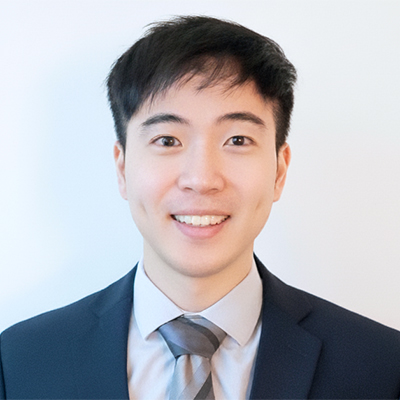
Informatics Pharmacist
NYC Health + Hospitals/Bellevue
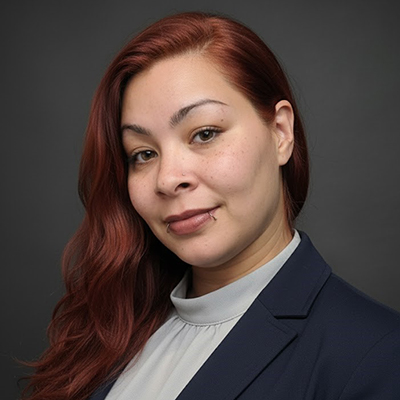
Pharmacy Technician
NYC Health + Hospitals/Lincoln
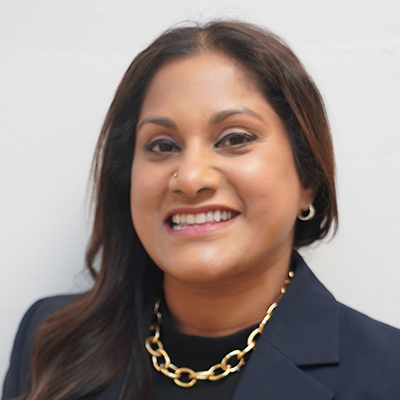
Assistant Director of Pharmacy
NYC Health + Hospitals/Harlem
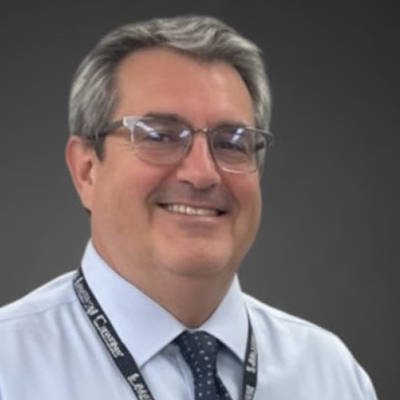
Assistant Director of Pharmacy
NYC Health + Hospitals/Lincoln
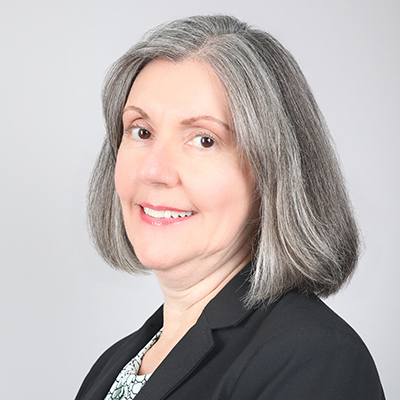
Director of Pharmacy
NYC Health + Hospitals/Jacobi
Q: What are 5 words you might use to describe your work.
Rosemarie: accuracy, safety, quality, integrity, and compassion
Susan: innovative, strategic, compassionate, collaborative and transformative
Brian: analytical, strategic, collaborative, innovative, data-driven
Theodore: detailed, Fast-paced, Rewarding, Challenging and Collaborative
Maria: empathetic, dedicated, passionate, adaptable and rewarding
Q: What were the career steps that brought you to your current position?
Theodore: I Completed pre-pharmacy coursework in sciences (chemistry, biology) at New Mexico Highlands University.
I Gained valuable experience and leadership skills in roles at Walgreens, Walmart, and Albertsons.
I later pursued and completed a Pharm.D. from the University of Florida (Go Gators) strengthening clinical knowledge and patient care expertise.
Since 2017, I’ve been with NYC Health and Hospitals/Lincoln, providing care in one of the most vibrant and complex healthcare environments in the country.
Rosemarie: I started my career at NYC Health + Hospitals/Jacobi many years ago, as a pharmacy student from St John’s University, and I never left. I was the very first pharmacy intern, moved up the various levels as a Pharmacist, to Assistant Director, and now Director. Jacobi has been my home for 40 years. I stayed because of the people I worked with, and the relationships I formed along the way.
Brian: I began my career in a variety of pharmacy settings, where I consistently observed the same challenge—technology existed, but it wasn’t being fully leveraged to enhance care. That gap led me toward pharmacy informatics. I’ve always been passionate about enabling healthcare professionals—experts in patient care but not necessarily in digital tools—to work more efficiently and safely through technology.
Maria: My career in pharmacy began at CVS Pharmacy, where I worked as a Pharmacy Technician and gradually advanced into specialized roles. Along the way, I’ve gained valuable experience that has shaped me into the expert I am today.
Susan: My journey began long before my career—I came to the U.S. as a child from Kerala, India, watching my parents work tirelessly as a union machinist and a nursing home kitchen worker. Their work ethic runs through my veins. Like them, I took on multiple jobs even outside pharmacy growing up, learning grit, resilience and adaptability early on. Today, I carry those lessons forward—driving access to equitable care for underserved communities and teaching the next generation of pharmacy leaders.
Q: Is there ever such a thing as an average day?
Rosemarie: No, it is always an adventure, and I would not have it any other way! It is so important to keep an open mind and embrace any situation that comes our way. Our teams are strong, smart, resourceful, and caring. We collaborate and adapt to the changing needs of our patients, our communities, and our staff. I have worked through so many different situations over the years. Together, we can handle anything.
Brian: Not at all. Each day involves a balancing system optimization, data analysis, and collaboration across clinical, operational, and IT teams. Some days focus on resolving immediate challenges, while others involve leading enterprise initiatives that advance digital pharmacy practice and operational excellence throughout NYC Health + Hospitals.
Susan: It is never a dull moment and every day is very exciting here at NYC Health + Hospitals/Harlem. It keeps you on your toes. In public health pharmacy, no two days are alike. Some days are addressing clinical questions trying to find the best medication regimen with medical teams for our patients, finding therapeutic alternatives for nonformulary medications, working with our amazing corporate pharmacy partners, others mentoring pharmacists, teaching pharmacy students, writing policies, partnering with different departments on pharmacy related projects or leading new clinical pharmacy initiatives.
Theodore: Not really. Even after all these years, pharmacy work continues to surprise me, reflecting on a pharmacy career that spans multiple states, healthcare systems, and evolving roles. From the early days as a staff pharmacist to now serving a diverse population through NYC Health + Hospitals, I have learned that while certain tasks—like filling prescriptions and supporting pharmacy staff—are part of the daily routine, no two days are the same. Each day brings a different set of patients, unique challenges, and unexpected issues.
Maria: Working in the pharmacy world is never an average day. You have to be passionate, caring, and truly love what you do to thrive. The key to success is mastering all aspects of the job—whether it’s technical, interpersonal, or operational. That way, you’re able to help both your patients and colleagues achieve their best.
Q: How much has the field of pharmacy changed since you’ve been in it?
Brian: The transformation has been profound. Technology now drives nearly every aspect of medication management, from automated dispensing and smart infusion pumps to barcode verification and real-time analytics. Clinical decision support and system integration across Epic, Omnicell, and other platforms have elevated safety, efficiency, and informed decision-making to new levels. Today, pharmacy informatics serves as the backbone of medication management, connecting data, technology, and clinical expertise in ways that were previously unimaginable.
Susan: From paper orders to electronic, the field of pharmacy has changed so much. I remember running up and down the floors of the hospital in South Philly as a pharmacy technician to grab the paper orders to check for the medications prescribed. The profession has transformed from being product-centered and just dispensing to becoming patient centered, and truly a cornerstone of public health.
Maria: Pharmacy has come a long way in the past 24 years. I recall my early days at CVS Pharmacy, where managing computer systems and inventory was much more hands-on. Now, with advanced systems and automation, pharmacy practices have evolved significantly, enabling the field to provide better patient care more efficiently.
Rosemarie: Two of the biggest changes I have seen over the course of my career is the advancement in technology and the growth of our clinical role in patient care. When I first started working as a Pharmacist, everything was handwritten and done manually. Penmanship was very important. We would hand write our patient profiles and all of the prescription labels. Now, everything is automated and computerized. We use robots and dispensing cabinets to process our prescriptions and dispense individual doses for our patients. We are much more efficient and have increased patient safety by reducing manual errors.
Theodore: The field of community pharmacy has changed significantly:
- Technology has transformed workflow: E-prescribing, automated dispensing systems, and digital records have improved efficiency and accuracy.
- Patient expectations have evolved: Pharmacists are no longer ‘just dispensing’ we are seen as some of the most accessible and trusted healthcare providers.
- New medications and therapies: The rise of specialty medications and biologics has expanded treatment options but also added complexity to pharmacy practice.
- Regulations and reimbursement: ongoing changes in insurance policies and pharmacy benefit managers (PBMs) have introduced new financial and administrative challenges.
A Profound Moment for Maria Lopez
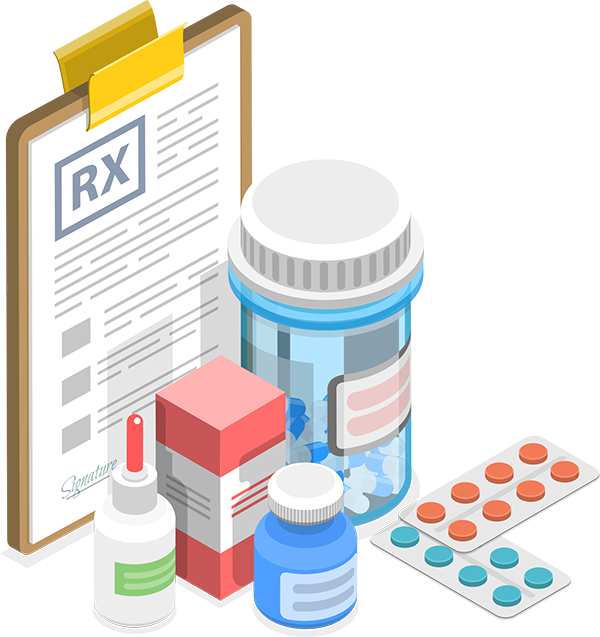
I found myself involved in a situation that reminds me why I chose this career in the first place. It was a typical busy day in the pharmacy when a woman came in looking distressed. She explained that her father, who had recently undergone a kidney transplant, was in urgent need of a medication that his insurance wouldn’t cover. She was willing to pay out of pocket, but when I told her the total cost was $875, her face dropped.
With a heavy heart, she shared that she was willing to sacrifice even her rent to make sure her father had the medication he needed. It was one of those moments when you realize the weight of what people are going through. I couldn’t just stand by and let her face that kind of financial burden without exploring every possible solution.
I immediately took it upon myself to search for a discount copay card. After a few minutes of searching, I found one that would reduce the total cost to just $25—an amount she could afford. When I told her the news, she was overwhelmed with relief. She broke down in tears, thanking me profusely for going the extra mile.
Through her tears, she said something I’ll never forget: “Not many people in the world would do what you’ve done for me today. You are meant to do this. Keep helping people, and you’ll be rewarded in the end. I never give up on people who have a good heart.”
Her words stayed with me long after. It’s moments like these that remind me why I love being a pharmacy tech. It’s not just about dispensing medications; it’s about connecting with people, offering a listening ear, and sometimes, going a little further to make sure they get the help they need.
Helping that daughter care for her father in his time of need was more than just a job—it was a calling. And in moments like these, I’m reminded that the impact we have on others goes far beyond what’s written on a prescription label.
Q: What gives you the most job satisfaction?
Susan: Making sure our patients—many of whom are immigrants just like me—receive equitable care, and watching our entire team not just pharmacy but all departments succeed, working together. Seeing pharmacists and technicians grow into confident leaders and knowing our work directly strengthens community health is the most rewarding part of my role.
Brian: Driving measurable improvement. When a new process, data solution, or system enhancement leads to safer workflows, time savings, or fewer medication errors, it reinforces why this work matters. Seeing technology translate into tangible benefits for both patients and pharmacy staff is what makes this work deeply rewarding and underscores the value of innovation, collaboration, and continuous improvement in our profession.
Rosemarie: I get the most job satisfaction knowing I made a difference in a patient’s life. I recall an occasion some years back, when a young pregnant patient needed a medication that was relatively new for us. She was so concerned for her own well-being and the wellbeing of her unborn baby, and afraid she would not get the medication. She came to the pharmacy and shared her fears. I listened, and told her she had nothing to worry about. I was going to make sure she got everything she needed. She came to the pharmacy every two weeks over the course of her pregnancy to pick up her medication and wanted me to fill her prescriptions. She delivered a healthy baby girl. We ran into each other about two years ago in the lobby at Jacobi Hospital. We relived that difficult time in her life, and then she came back and gave me a beautiful card. She wrote how grateful she was for the care she received from the Jacobi Hospital doctors, nurses, and me. She said I had blessed her. I did not realize at the time, what filling those prescriptions had meant to her. I will never forget her.
Theodore: Helping someone who’s overwhelmed by their meds, struggling to afford their meds, or experiencing access barriers-and being that person who helps them feel heard and informed-that’s why we do this.
Maria: Pharmacy is a small world. No matter where you go or who you work with, you always meet people who recognize you and value your contributions.
Building strong relationships with both patients and colleagues is what makes the work so rewarding. I especially appreciate the open communication and collaboration that helps improve the work environment and pushes the profession forward.
To Make An Appointment
Call 1-844-NYC-4NYC
to make an appointment with an NYC Health + Hospitals provider today.
